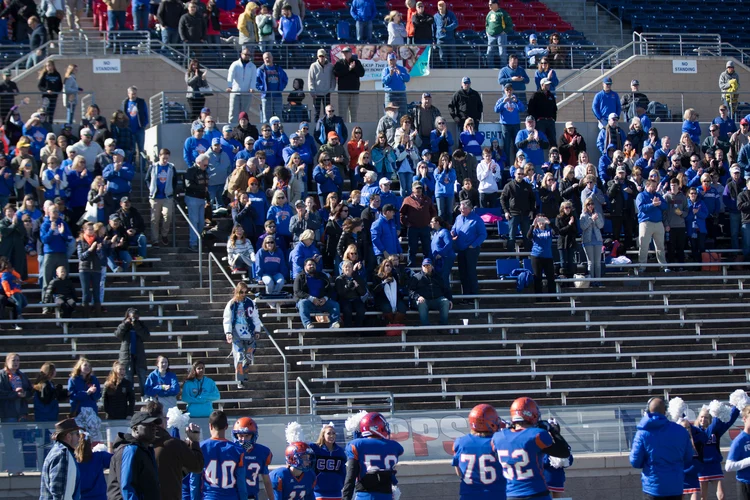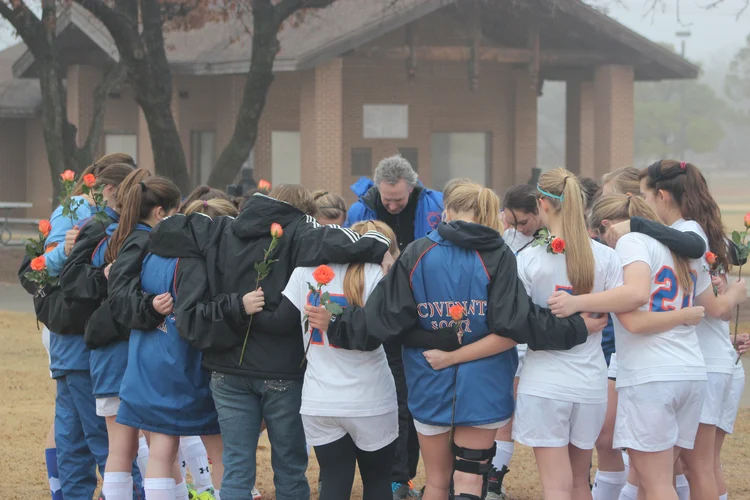What Really Happens When Parents Coach from the Stands?

As a parent of an athlete, why is it so hard to be a fan on the sidelines at games?
Game Changer
After playing or watching just about every sport there is over the past 55 years and entering my 20th year of coaching a host of various sports, (more extensively and recently soccer) I have seen and heard just about everything there is. In fact, it was shifting my normal role as coach to a marshal one September morning that changed everything for me. Marshals patrol the grounds to assist with directions, injuries, weather related issues, and unfortunately, unruly fans, etc. As I patrolled the grounds, the more concerned I became.
What I saw, what I heard, had me asking the question “is this taking place at my games – do I / we ever sound like that?” The angry yelling coming from most every game was upsetting enough to be life-changing for me. Worse than the actions of these adults was the end result of these actions; the looks on the faces of the kids told a story I’d never forget. They too were sad, upset and disgusted. The straw that broke the camel’s back for me was a fight that broke out over a 5 year old’s rec match.
“What” is the problem?
Universally, regardless of the sport, I have witnessed the transformation of good-hearted, mild-mannered parents turning into angry, aggressive coaches who fill the bleachers with a non-discriminating ability to target their own kid, or even worse, your kid.
What really happens when parents act this way and how can we change the paradigm so both parents and players can enjoy the experience? After all . . . it’s just a game.

What is actually happening when parents coach from the stands?
#1 – Confusion
When a player is on the field, they are either doing what they think is the right thing to do or what the coach has asked them to do. Sometimes those are aligned and sometimes they are not. The extra set of instructions from the stands add confusion to the situation for the player in particular. A child who is usually in the midst of trying to make a split second decision, is now faced with the complex task of trying to process a) what they think to do, b) what their coach wants them to do, c) their ability to do either and now d) all the other instructions being sent their way, right or wrong, from their own parents or other fans. Ironically, the actions of parents actually generate the opposite result desired: a continual downward spiral in performance by the player. This diminishing performance leads to more animated commentary from parents, spinning the scenario wildly out of control by game’s end. The cumulative effect of all this confusion is frustration for the:
- Player (what was I supposed to do? why are they yelling at me? what did they say? why did they say that, etc.)
- Coach (that’s not what I wanted him/her to do, how do I get them to be quiet? etc.)
- Teammates (why did he/she do that, that wasn’t the play we worked on in practice, plus I was wide open?)
- Parents themselves (if they only did what I said, I can’t believe they didn’t see that, why aren’t they getting any better?, etc.).
More times than not, the instructions from the parents are not the right set of instructions. It might have appeared to be so on the surface and from the parent’s perspective. But, the truth is, how does the parent even know what the child is supposed to do or what is expected of them in that given situation? Parents are not in the huddle or at every practice to know the game plan. And to add even more conflict, what is being communicated is not easily heard. In essence, the parent is over-riding the instructions, goals and objectives of the team and coach in lieu of what they perceive to be the right thing.
#2 – Condescension (negativity)
How does it make a player feel to hear chirping in their ear all game long? What parents are actually accomplishing is telling the coach, ref, teammates and player that what they are doing is wrong, poor, and unacceptable. This does not drive optimal performance or build team chemistry.
Science tells us that for every negative thing we are told, it takes approximately 10 positive comments to get our emotional bank account back to neutral. So, how much work is involved in getting those on the field or court, after listening to an hour or more of negative commentary from the sidelines. The cumulative effect of the beat down is a deteriorating interest for the sport itself, eventually stunting development, slowing success, desire to practice and leaving the sport altogether . . . exactly what the parent was trying to avoid, a lack of success. Worse yet, this lack of success and confidence through sports will often spread beyond the stripes on the field and into life itself; into the classroom, their relationships, their work, social life and even family life.
I can go on and on with the what actually happens when parents try to coach form the stands, but I think you understand.
